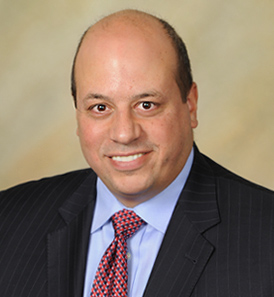Rudolph Clarke Attorneys Lead Norristown Area School District Investigation and Review Resulting in Charter School Denial
 Following an intensive and detailed four-hour-long public hearing led by Rudolph Clarke attorneys, the Norristown Area School District Board of School Directors concluded that the charter school application filed by the Humanus Academy Public Charter School created many more questions than answers, and voted unanimously to deny the application. Humanus did not appeal the Board’s denial of its application.
Following an intensive and detailed four-hour-long public hearing led by Rudolph Clarke attorneys, the Norristown Area School District Board of School Directors concluded that the charter school application filed by the Humanus Academy Public Charter School created many more questions than answers, and voted unanimously to deny the application. Humanus did not appeal the Board’s denial of its application.
Attorney Peter Amuso worked closely with District Administrators to create a detailed financial and curricular analysis of the Humanus application, and then led the School Board’s subsequent public review. Peter conducted a four-hour-long public hearing in December 2014, asking detailed questions of the charter school’s organizers. Most of the questions posed regarded discrepancies identified by Peter and another Rudolph Clarke attorney, both between different sections of the Humanus application and between the application and the proposed school’s draft budget.
Humanus had proposed constructing a kindergarten through first-grade school to serve 100 pupils in the first year, with the possibility of expanding to 12th grade by the fifth year. But Peter pointed out during the public hearing that the zoning of the property in question did not allow for a public school.
In addition, Peter raised repeated questions about the structure of the administration that the applicants were simply unable to answer. Particularly, the application outlined several administrative positions that were not reflected in the budget, including a principal, dean of students and a special education case manager. The School Board took issue with plans to have the CEO serve as principal and teachers to serve simultaneously as dean of students, heads of departments and athletic director.
Also at issue was the corporation’s assumption that the charter school would service 14 special education students per 100, given that the district average was approximately 16 percent. Nor could the proposed school’s leaders identify any distinction between the special education program they proposed and the curriculum already offered by the District.
Ultimately, based on a careful review of the Administration’s analysis and the answers given at the hearing, the School Board voted to deny the charter school application. That denial is final because the applicant did not appeal the Board’s decision to Pennsylvania’s Charter School Appeal Board.

